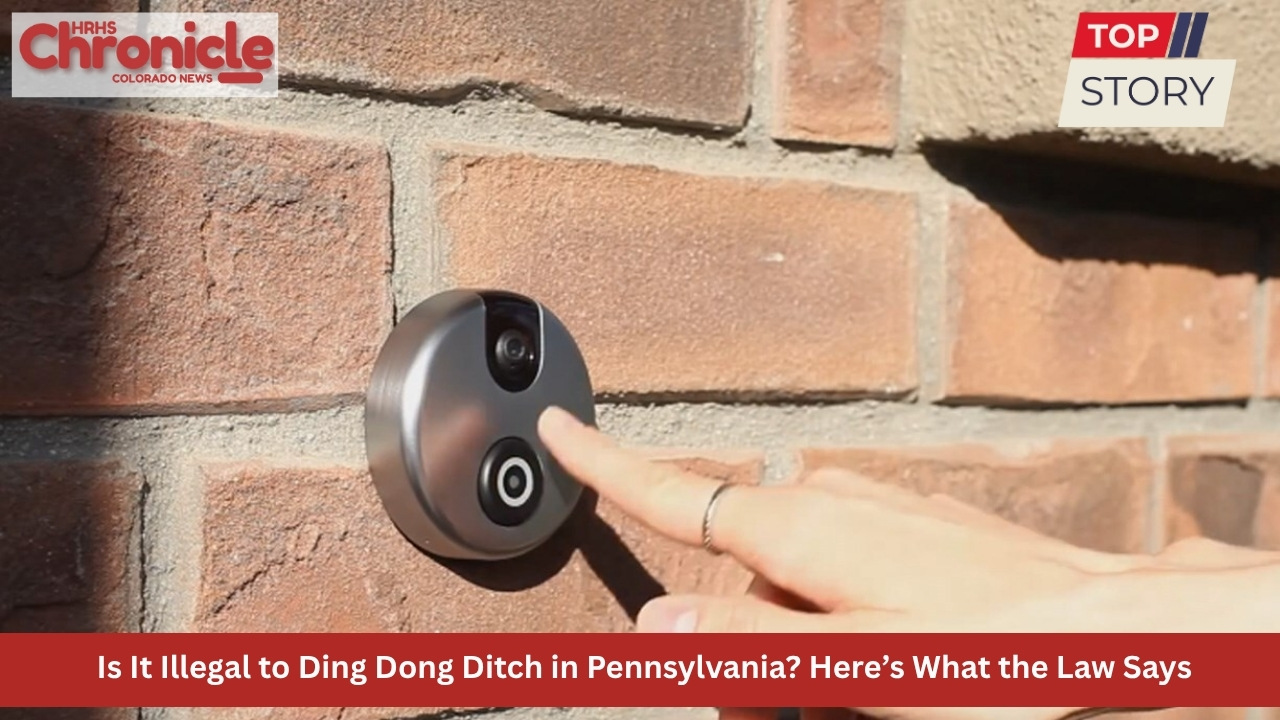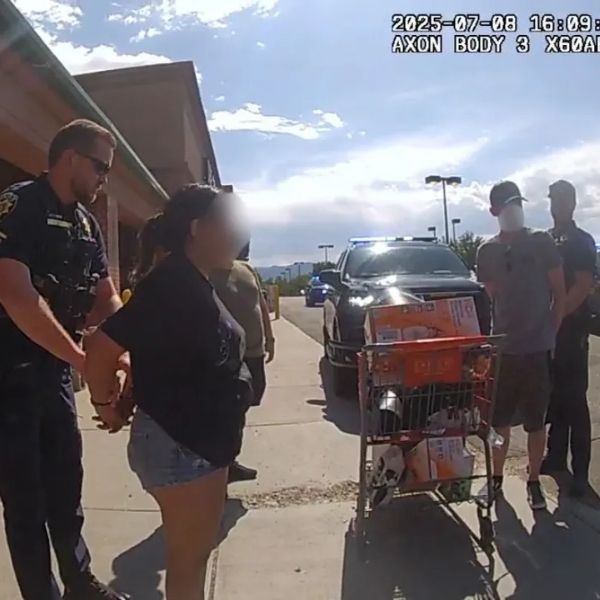Pennsylvania – Ding dong ditch—also known as knock, knock, ginger—is a classic prank where someone rings a doorbell and sprints out of sight before the homeowner answers. While this childhood antic might seem lighthearted to the people pulling it off, it’s a source of confusion, annoyance, and sometimes even distress for residents across Pennsylvania. But is ding dong ditch actually illegal in the state? What does the law say, and what penalties could someone face? If you’re living in Philadelphia, Pittsburgh, Harrisburg, Erie, or any of the state’s midsize towns, here’s what you need to know about the legality of this long-standing prank.
Understanding Ding Dong Ditch
Ding dong ditch is often chalked up to innocent fun, especially among kids and teens. It usually involves groups of friends roaming through neighborhoods, picking points at random, running up to ring or knock on a door, and dashing away while giggling. The prank is common throughout Pennsylvania’s suburbs—think Allentown, Bethlehem, West Chester, and York—especially on summer nights when school’s out.
Yet the perception of the prank changes when you’re on the receiving end. Having your evening interrupted or being startled late at night is rarely described as “harmless.” In some cases, the situation escalates, causing neighbors to call the police or confront pranksters directly.
The Legal Context: Pennsylvania’s Laws on Ding Dong Ditch
Pennsylvania law does not specifically call out “ding dong ditch” as a criminal offense. Instead, the legality of the prank hinges on how it’s executed and the specific circumstances surrounding it. Several key statutes may come into play depending on the situation:
Trespassing
Trespass law is straightforward: entering someone’s property without permission is illegal. In the context of ding dong ditch, even briefly setting foot on a porch or in a yard qualifies as entering private property. In Pittsburgh’s Squirrel Hill or Philadelphia’s Fairmount neighborhoods, for example, front yards and stoops are almost always considered private property. Pennsylvania’s trespassing law, specifically 18 Pa.C.S. § 3503, prohibits entering or remaining on someone’s property without consent—even if your intent is a quick prank.
First-time trespassing offenses are usually minor (often a summary offense), but police are especially likely to respond if someone calls after repeated pranks or if a “No Trespassing” sign is visible near the door. Rural areas such as Lancaster County, where no-trespassing signage is more common, may see stricter enforcement.
Disorderly Conduct
Disorderly conduct is meant to prevent public annoyance, alarm, or inconvenience. Under 18 Pa.C.S. § 5503, causing unnecessary commotion or creating physically offensive conditions can constitute disorderly conduct—a charge sometimes leveled when ding dong ditch pranks get out of hand.
If a series of doorbell pranks disrupt a neighborhood in Reading or create a panic in a Harrisburg apartment building, local police have the discretion to charge participants with disorderly conduct. This can carry fines, mandatory community service, or even a brief stay in juvenile detention for repeat offenders.
Harassment
When ding dong ditch crosses the line from one-off joke to targeted campaign, Pennsylvania’s harassment laws can apply. If pranksters return repeatedly to the same address in Easton, State College, or Scranton—especially if their actions are meant to intimidate, scare, or annoy—the law (section 2709 of Title 18) considers this harassment.
Summary harassment charges can still be accompanied by fines and a criminal record. More serious or repeated harassment can be prosecuted as a misdemeanor, exposing pranksters (and in some cases their parents) to more substantial penalties and civil liability.
Real-World Examples from Pennsylvania Communities
Law enforcement across Pennsylvania reports regular complaints about ding dong ditch pranks, and examples exist in both small towns and the state’s larger metro areas.
Lower Allen Township, Cumberland County
In March 2024, a ding dong ditch incident in Camp Hill turned dangerous when pranksters were caught on video brandishing a firearm while ringing a doorbell at night. The incident, reported to the Lower Allen Township Police Department, quickly escalated from a childish prank to a criminal case involving firearms charges and criminal threats.
Philadelphia Neighborhoods
In parts of Northeast Philadelphia and the Main Line suburbs, police have responded to complaints of repeated late-night pranks, with some residents reporting stress and fear due to recurring disturbances. Homeowners with security cameras are increasingly sharing footage with authorities, resulting in warnings, citations, and even disorderly conduct charges.
Erie and Suburban Pittsburgh
School officials in suburban districts like Upper St. Clair and Erie’s Milcreek Township have issued warnings to students about doorbell pranks after repeated complaints from residents. Some school resource officers remind students that being charged with trespassing or harassment may impact their academic standing or future college applications.
Juvenile Justice and Parental Responsibility
In most cases, minors caught ding dong ditching for the first time are not arrested or prosecuted to the full extent of the law. Police typically issue stern warnings, and in some situations, parents are notified to pick up their children from the local police station.
However, the legal landscape changes if:
-
The prank is repeated, targeted, or involves damage or theft.
-
Someone is injured or significantly distressed.
-
Parents ignore police warnings and allow the behavior to continue.
In repeated or serious instances, parents in places like Harrisburg or Lancaster may be held civilly liable for damages caused by their children’s actions. Pennsylvania law allows for criminal fines, restitution, and in some cases, community service or court-mandated counseling.
With the rise of doorbell cameras and neighborhood security apps such as Ring and Nextdoor, catching ding dong ditchers in the act has become much easier for Pennsylvania homeowners. In Philadelphia alone, community message boards routinely feature images or video clips of pranksters, sometimes leading to swift police responses and follow-up with local schools.
In Pittsburgh’s more suburban neighborhoods, the presence of widespread security cameras has been a deterrent—teenagers are more likely to be identified and parents can be contacted directly, deescalating many situations before they reach court.
Potential Penalties and Long-Term Consequences
While the legal consequences of a single ding dong ditch incident are typically minor, they should not be dismissed. Penalties can include:
-
Fines up to several hundred dollars.
-
Court-mandated community service.
-
Juvenile court referrals for repeat offenders.
-
Civil lawsuits if the homeowner claims harassment or property damage.
-
Long-term entries on juvenile records, which may affect future school or job applications.
In cities like Reading and Allentown, these consequences can escalate if a prank is combined with other behaviors, such as vandalism, late-night curfew violations, or targeting vulnerable neighbors. Even in the absence of criminal charges, being brought to court can be a serious and stressful experience for young pranksters and their families.
Final Thoughts
Ding dong ditching might be a relic of childhood mischief, known by many names across generations in Pennsylvania. But what seems harmless can quickly enter the realm of the illegal under state statutes covering trespassing, disorderly conduct, and harassment. With police in cities like Philadelphia, Lancaster, Camp Hill, and Pittsburgh regularly responding to complaints, and with technology making pranksters increasingly easy to catch, it’s best to think twice before you ring and run.
What remains clear is that Pennsylvanians value the right to peace and privacy at home. Practicing respect for others’ property and boundaries—not just in compliance with the law, but out of common courtesy—is the safest and most responsible way to keep everyone in the neighborhood feeling safe and respected.

Mrs. Odice has been a teacher here for 9 years. She likes yoga and spends most of her time with her 3 kids. She also grew up going to Douglas County schools and is Canadian.















Leave a Reply